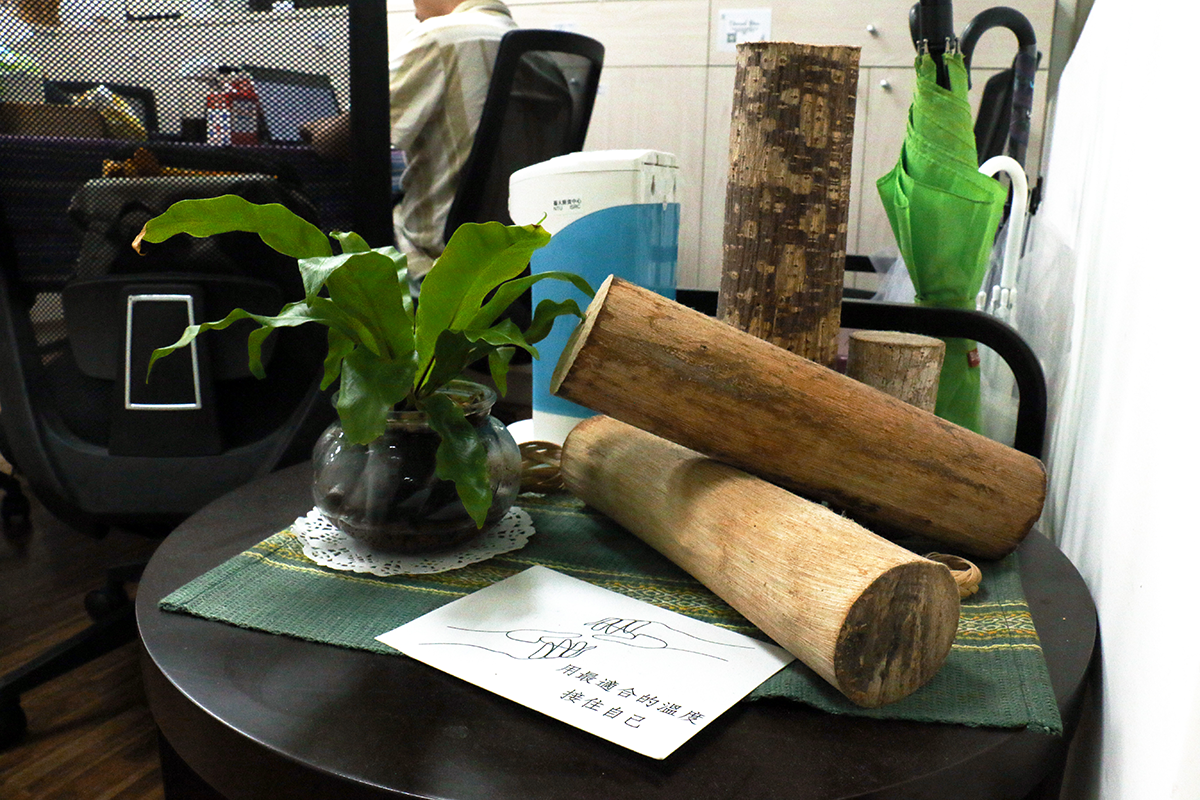
Invited small-scale farmers share their experiences of indigenous vegetable farming (provided by ISRC).
Since 2022, the NTU Indigenous Students Resource Center (ISRC) has been hosting an enticing event: "Good Food, Good Things." This gathering serves as a lively platform for indigenous students meet, not just to forge bonds but also to learn from their upper classmates. In this unique space, the students begin to address each other as "brother and sister," uniting then to practice the cherished tradition of "food sharing" that holds deep significance in their cultural heritage. The event is also an occasion for them to exchange personal narratives—and embark on a collective journey of understanding and companionship.
Fostering Connections through Shared Food, Stories, and Experiences
Ever since its establishment, the NTU Indigenous Students Resource Center has maintained a close partnership with NTU CIS and the Taiwan Indigenous Peoples Resource Center (TIPRC). Together, they have planned and held an array of events and activities to address the needs of indigenous students on campus. Last year, the Center team welcomed its new Research Assistants Buhay Hayung and Kanme Mavaliw, who infuse fresh energy and thinking into Center operations while serving as beacons for fellow indigenous students. "Good Food, Good Things" has proved to be a vital occasion for indigenous students of different departments and ages to gather and support each other.
Such gatherings are also graced by indigenous alumni who return to the Center to share their personal journeys with the students over a meal. While the students may bear a diversity of anxieties and concerns, they remain united by a common thread—their indigenous heritage. This shared identity fosters an atmosphere of understanding and empathy in which attendees can forge meaningful connections. Kanme stressed, "These informal gatherings, with no specific agenda, encourage students to let their guard down and engage in honest conversations with their peers and mentors. Such interactions often lay the foundation for real friendships that extend beyond the event itself, creating a sense of belonging."
Building Cohesion and Expanding Horizons
Buhay's journey into indigenous affairs and student engagement was sparked by an invitation from a college friend who, like her, belonged to an indigenous community. Through this encounter, she was introduced to the diversity of Aboriginal groups on campus. Similarly, Kanme found a supportive community through Absoundtrack, a platform that connected her with a group of friends. Both Buhay and Kanme emphasized the profound significance of human connections in the indigenous way of life.
The indigenous students at NTU have a varied mix of backgrounds and experiences. Urban-dwelling students are disconnected from their native cultures, while students with tribal backgrounds suddenly face the stark contrast between life in the big city and their ancestral villages. To help them face such challenges and offer holistic support, ISRC is committed to nurturing connections among the indigenous students, empowering them to shed stigmas and reclaim their identities. Buhay and Kanme both stressed, "Our motivation stems from witnessing students embrace their self-recognition, empowerment, and cultural pride."
In recent years, ISRC has proactively ventured into innovative collaborations, as by co-hosting lectures with the Women's and Gender Research Program. These lectures delved into the intricate intersections between indigenous and gender identities. "By integrating the lens of gender, we draw a wider audience to explore the world of indigenous communities, simultaneously unveiling diverse facets and attributes of our students," noted Buham.
With the continuing efforts of Kanme and Buhay, ISRC envisions a future where NTU stands as a welcoming place of inclusivity and diversity. Their collective aspiration is for the campus to be a space where the indigenous spirit flourishes — where diversity is celebrated in all its vibrant forms.

Psychodrama workshop (provided by ISRC).

The first-ever graduation ceremony for indigenous students, held in 2023 (provided by ISRC).

Discussing contemporary indigenous issues at “When men weave,” co-hosted with the Women's and Gender Research Program (provided by ISRC).

The ISRC's highly-dedicated research assistants, Buhay (right) and Kanme (left); committed to organizing lectures, gatherings, and other activities, as well as providing encouragement and guidance to indigenous students.

The entrance of the ISRC. The arrangement conveys a message of warmth and friendliness.

